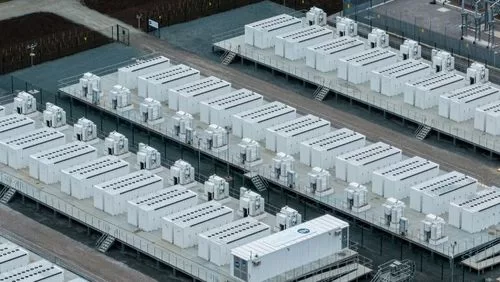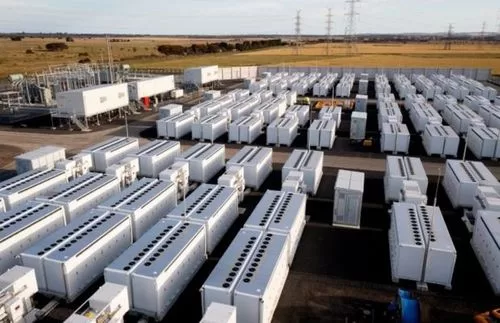Estonia has initiated construction of what will be the largest battery park in Europe that will significantly contribute to the synchronization of the Baltic power grids with Europe by 2025: this project of Evecon, Corsica Sole and Mirova will enhance the energy security and will boost renewables in Estonia.
Lithuania has made a decisive move toward energy security for Estonia with the beginning of construction of what will be the biggest battery park in the European mainland. The project is in Kiisa, near Tallinn, though the Baltic Storage Platform’s members are Estonian energy firm Evecon, French solar generator Corsica Sole and sustainable finance management firm Mirova.
Significance
The project, aimed at preparing Estonia, Latvia and Lithuania to integrate their electricity networks with European ones by 2025 and thus shaking off their reliance on the Russian grid. Planned battery storage park of 200 MW and 400 MWh of storage capacity equivalent to 90 000 households’ energy. The company will deliver the first two parks before the end of 2025 and the second one in 2026

Read also Top 4 Largest Battery Energy Storage Systems under construction in Europe
Energy storage is also critical for the ability of Estonia to achieve zero-emission levels for electricity generation by 2030. Speaking to his counterparts from other member countries, the country’s climate minister, Yoko Alender stated that safe storage systems would play a handy role in this transition to a cleaner and reliable energy future for Estonia.
The integration of Baltic grids with Europe is also a geo-political decision, which breaks a long time dependency on the Russian grid. This transition will allow the region to become less dependent on outside sources of energy and would be less susceptible to energy shut downs which has been an increasing problem in recent years due to changing tensions around the globe.
This battery park in Kiisa is not an example on its own. Similar projects are being implemented in different European and global locations as nations attempt to balance their grids and increase the share of renewable power sources.
Same project around the world
other parts of the world such as America and Australia are also heavily investing in large scale battery storage. Currently, the largest energy storage station in the world is in California, its capacity is equal to 1,200MWh. The Tesla Big Battery, officially known as the Hornsdale Power Reserve in Australia, has helped balance the Australian grid reliably and frequently prevent outages while even competing in energy trading markets.
When countries are trying to reduce their greenhouse gas emissions for meeting the climate targets, the role of energy storage would be crucial. Lithium-ion batteries are also gaining space in Estonia to reduce dependence on other countries for power and to ensure a cleaner energy mix in line with its goal to build more battery parks. But, indeed, battery parks are not devoid of impact on the environment. The lithium-ion batteries needed in renewable energy are made from substances, including mining lithium, cobalt, and nickel that harms the environment by destroying habitats and emitting hazardous waste. Furthermore, batteries also have a limited number production cycle and have an exponential rate of power loss over the time.
Project factsheet
Constructor: Corsica Sole and Mirova.
Start date: 2024.
Completion date: First phase by 2025, second phase by 2026.
Storage capacity: 400 MWh.
Location: Kiisa, Saku Rural Municipality, Harju County, near Tallinn, Estonia.
Read also LGES Pauses Construction on part of its $5.5B Battery Facility in Queen Creek
Read also Plans underway to construct a 225MW pumped hydro energy storage plant in Estonia

Leave a Reply